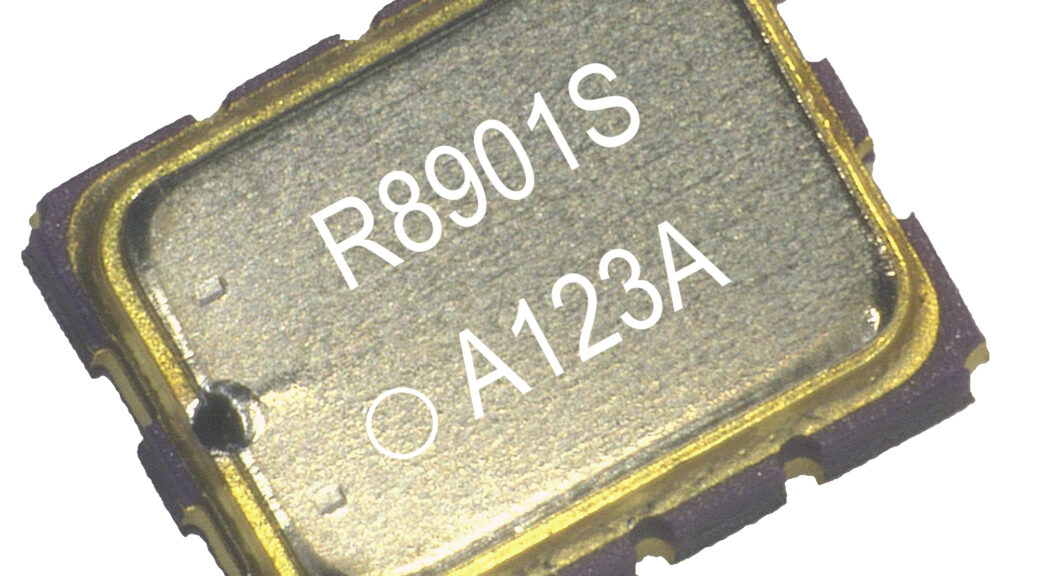
Epson Now Shipping Samples of Compact, High-Precision RTC Modules for Industrial Applications

Seiko Epson Corporation (TSE: 6724, “Epson”) has begun shipping samples of the RX8901CE and RX4901CE, two new RTC (real-time clock) modules1 for industrial applications with a built-in digital temperature compensated crystal oscillator (DTCXO)2.
The package dimensions are 3.2 x 2.5 x 1.0 (Max.) mm, making these Epson’s smallest RTC modules to date. The RX8901CE supports an I2C-Bus interface while the RX4901CE supports an SPI-Bus interface. Both provide accurate timekeeping in electronic systems while meeting the need for a small form factor and low current consumption.
Today, IoT devices, click-charge systems, security equipment, industrial systems and countless other applications that run based on time information need to keep accurate time information. Accurate tracking of time and date information is also needed in equipment that is installed in vehicles, outdoors, and other environments where systems are exposed to ambient temperature extremes. In addition, there is greater need for security to prevent information leaks caused by unauthorized product modification and tampering. These intrusions must be detected at all times with low current consumption. This has heightened the need in various markets for reliable devices that consume less current and remain frequency-stable over a wider operating temperature range.
The new RX8901CE and RX4901CE consume 0.24 µA (Typ.) of current, which is 30% less than the 0.35 µA (Typ.) consumed by the RX8804CE (an earlier equivalent Epson RTC module). The number of time stamp records that can be kept was expanded from 1 to a maximum of 32. Epson also expanded the interface options by offering an SPI-Bus interface in addition to an I2C-Bus interface.
Epson individually adjusts and guarantees the timekeeping accuracy of modules at the factory. This renders adjustment of timekeeping accuracy unnecessary and helps to increase design efficiency and quality.
Epson seeks to advance the frontiers of industry and drive the circular economy by applying the efficient, compact, and precision technologies that it has developed over many years to solve challenges. These technologies, which save energy, enable smaller products, and increase accuracy and precision, enable Epson to contribute to the Sustainable Development Goals (SDGs), which will bring about a better and more sustainable future for all.
Product applications
The new RTC modules are ideal for use in smart meters and security equipment, as well as in factory automation equipment and other small electronic products.
Related links
Please see the links below for further details about these products.
RX8901CE: https://www5.epsondevice.com/en/products/rtc/rx8901ce.html
RX4901CE: https://www5.epsondevice.com/en/products/rtc/rx4901ce.html
Please see the link below for Information on how to reduce system power use and improve time information accuracy.
Website URL: https://www5.epsondevice.com/en/products/lp/rx4901ce_rx8901ce.html
1 RTC (Real-time clock) module: A single-package product that has a real-time clock IC with clock, calendar, and other functions and an integrated 32.768 kHz crystal unit. These modules not only benefit users by eliminating the need to design oscillator circuits and adjust clock accuracy, their small size and level of integration also allow customers to use their board space more efficiently.
2 DTCXO: A digital temperature compensated X’tal (crystal) oscillator is an oscillator (crystal unit and oscillation circuit) with a function that applies corrections to frequencies, which change in response to the ambient temperature of the crystal unit. To output a stable frequency within a range of temperatures, TCXOs have a circuit that compensates the output frequency based on signals from a temperature sensor. DTCXOs use a digital circuit to compensate the frequency of the oscillator.